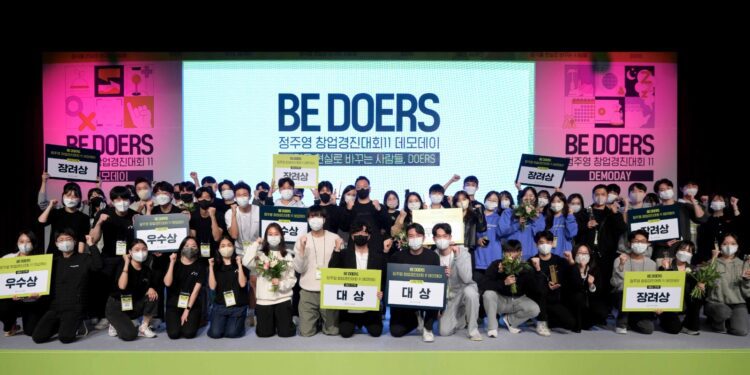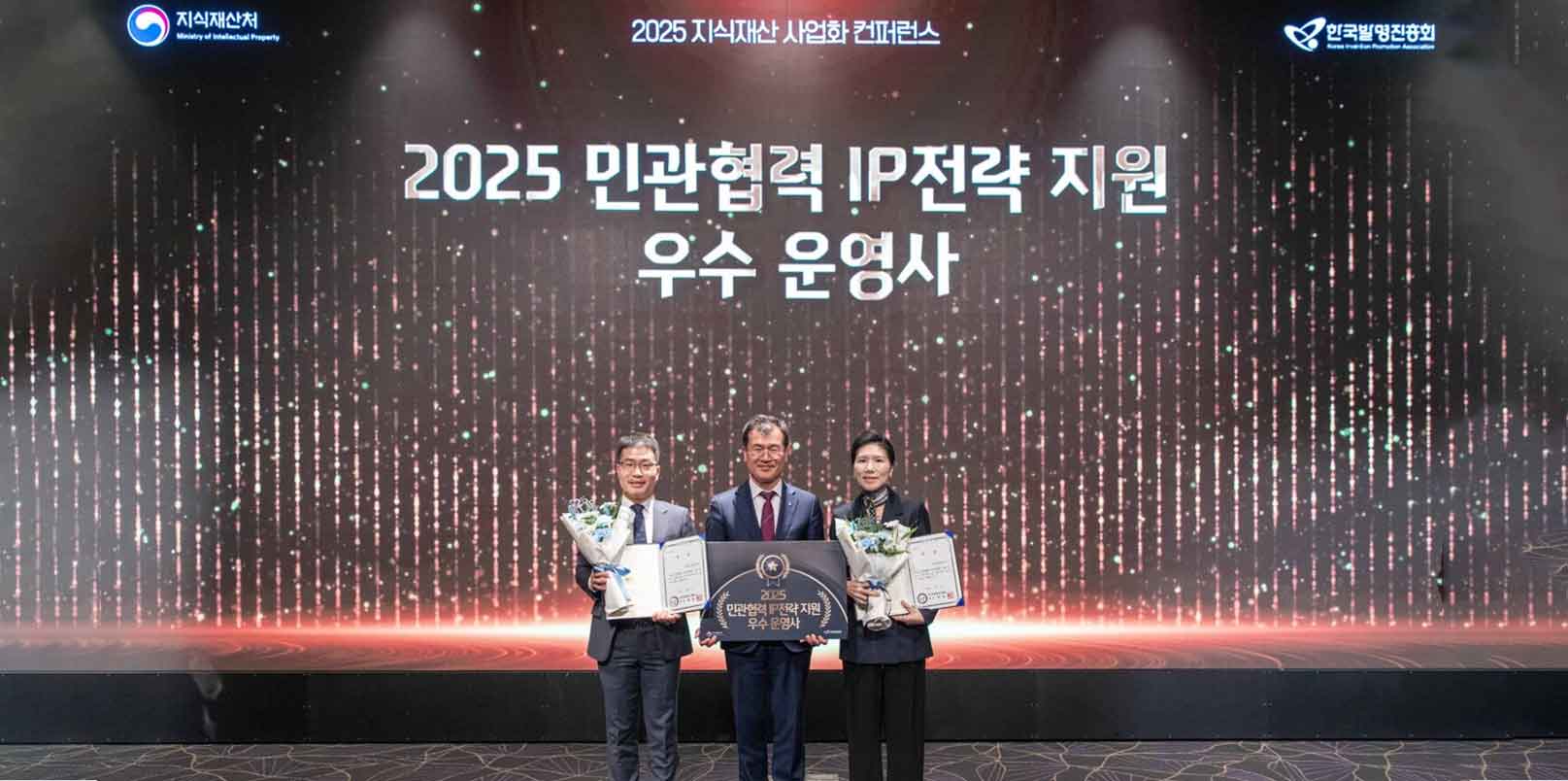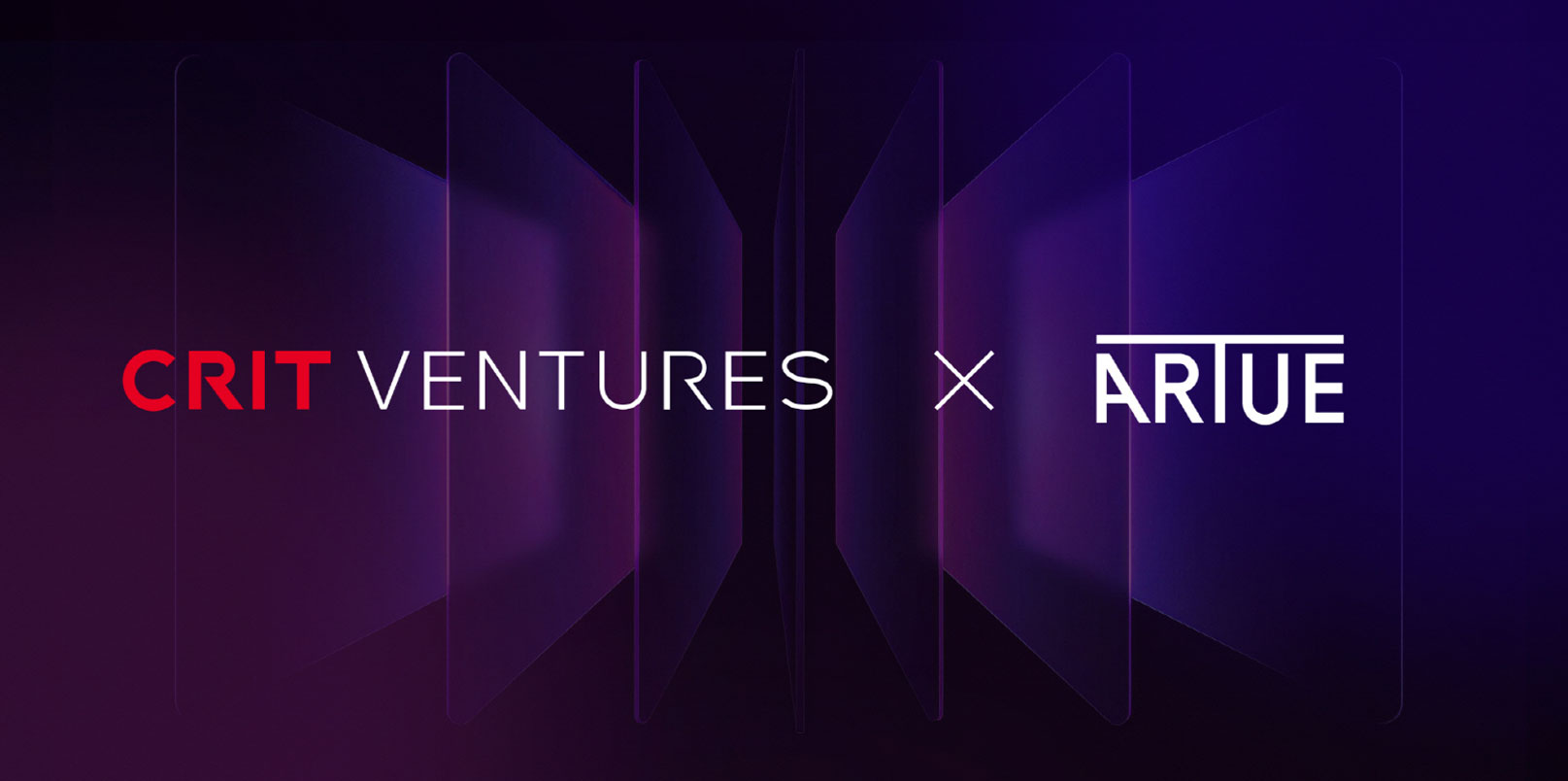The Asan Nanum Foundation, is a nonprofit foundation established in Oct. 2011 to commemorate the 10th anniversary of the death of Hyundai founder Chung Ju-yung(Asan), aiming to create an ecosystem that supports entrepreneurs and social innovators. The foundation has been active in spreading entrepreneurship since its inception. Taking inspiration from Asan’s creative spirit, the foundation empowers entrepreneurs and social innovators to take on challenges, learn by doing, and share their experiences.
The Asan Nanum Foundation is currently led by Suk-Whan Chang, along with a team of professionals from corporate and non-profit organizations. The foundation has created $350 million in social value over the past decade and supported over 400 Korean startups.
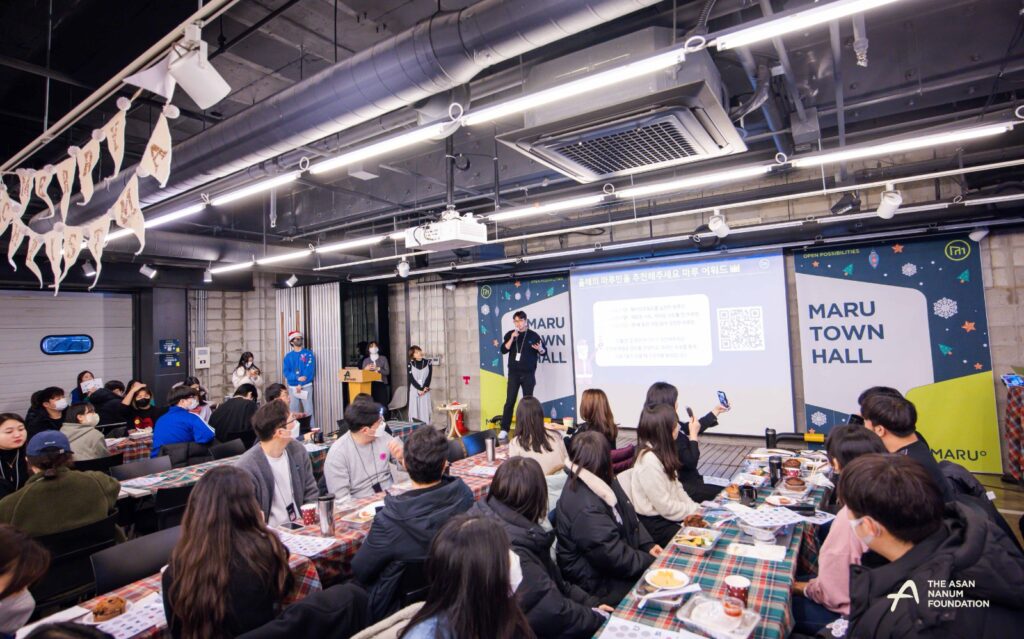
To encourage entrepreneurs and enhance the startup ecosystem, the Asan Nanum Foundation offers several programs and educational support:
- MARU: MARU is a startup-supporting incubating center operated by the Asan Nanum Foundation. It connects various stakeholders in the ecosystem and provides comprehensive support to growing startups. MARU acts as a platform for entrepreneurship, fostering new opportunities and changes in the ecosystem. Currently, it operates MARU180 and MARU360 cohorts.
- The Chung Ju-yung Startup Competition: This nationwide competition helps aspiring entrepreneurs kick-start their businesses. It aims to promote entrepreneurship and startup culture throughout the country and discover the next generation of leaders.
- Asan Nonprofit Startup Accelerating Program: This program supports early-stage nonprofit startups preparing for the rapid growth of their business and organization.
- Asan Voyager: Aiming to support early-stage Korean startups achieving global expansion, Asan Voyager not only provides mentoring, financial aid for overseas stays, PR, networking opportunities, and expert guidance to facilitate entry into the United States market, but also operates the learning community in which teams can share their insight with experts and other companies.
- The Asan Entrepreneurship Review (AER): AER is a business case study of startups. By discussing and analyzing the critical decision-making issues and processes of startups, the readers are able to better understand the growth process of startups and their founders.
- Startup Ecosystem Activation Research: To help design policies that foster a conducive environment for startups, the foundation publishes an annual report on the Korean startup ecosystem.
- Startup Ecosystem Partnership: The foundation sponsors various partners that contribute to creating a better learning and working environment for startup ecosystem members.
- The Chung Ju-Yung Angel Investment Fund was created in 2012 to invigorate the startup ecosystem. A catalyst capital, it supports a variety of entities, fields, and methods, enriching the startup investment ecosystem.
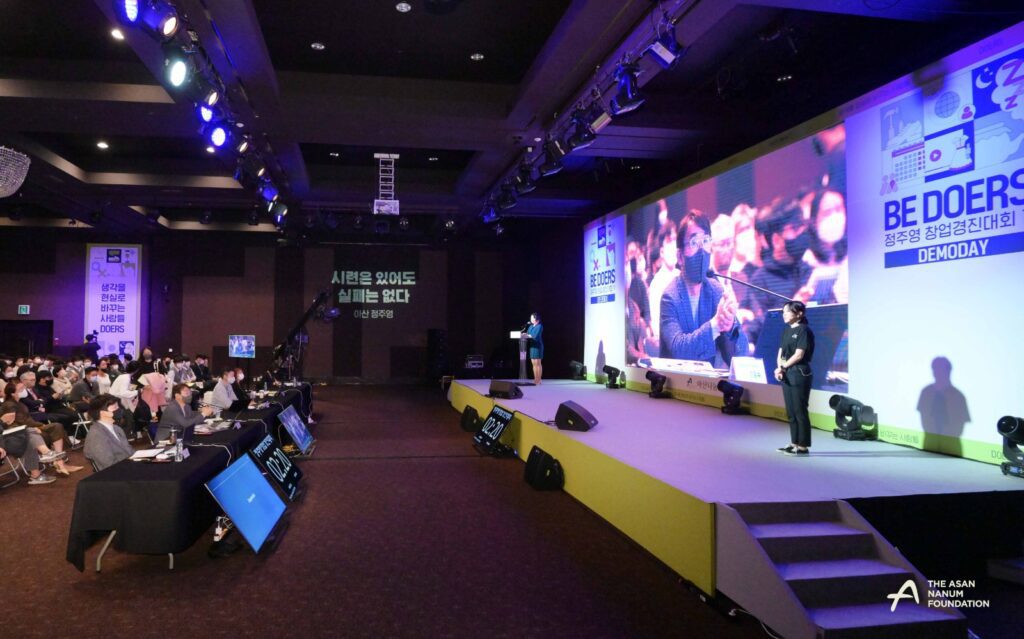
Programs for the Social Innovators
- The Asan Frontier Academy is a specialized training program for mid-level nonprofit managers to develop leadership, strategic management skills, and an entrepreneurial mindset.
- Asan Frontier Network(N_Square) is a voluntary network of social innovators from the Asan Frontier Academy alums who constantly challenge various projects to create social impact.
- ASAN SANGHOE Program: This program is designed for pre-startups with more than 2 people led by North Korean youth resettlers. The 9-month program includes workshops, seminars, 1 on 1 leadership coachings, and connections with top accelerators and investors in Korea as well as grants for commercialization.
Programs for the Education of the Future Generation
- Asan Youth-Preneur: is a one-semester program that provides an experience for teenagers to discover problems and find solutions in the world.
- Asan Teacher-Preneur: is a training program for middle and high school teachers. Teachers will be able to design curriculums that can help foster student entrepreneurship while cultivating their entrepreneurial mindset.
- Entrepreneurship Let’s Go: is a unique lecture program to expand the base of the entrepreneurship education ecosystem. Parents, teachers and education officials experience and understand a variety of educational methodologies.


